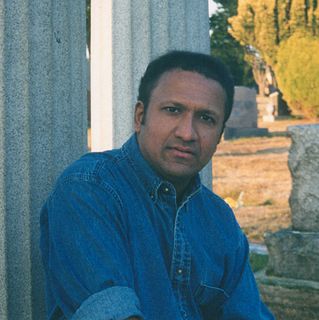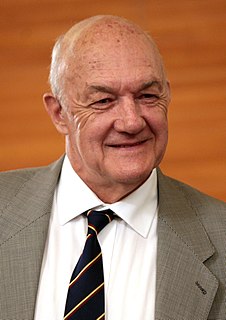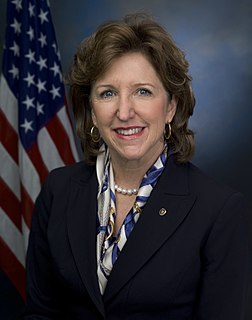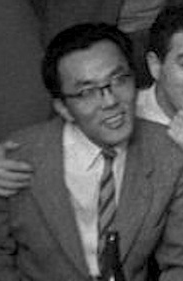A Quote by S. T. Joshi
The atheist, agnostic, or secularist ... should guard against the encroachment of religion in areas where it has no place, and in particular the control of education by religious authority. The attempts to ban the teaching of evolution or other scientific theories -- a feeble echo of medieval church tyranny and hostility to learning, but an echo nonetheless are serious threats to freedom of inquiry and should be vigorously combated.
Related Quotes
I believe that prayer in public schools should be voluntary. It is difficult for me to see how religious exercises can be a requirement in public schools, given our Constitutional requirement of separation of church and state. I feel that the highly desirable goal of religious education must be principally the responsibility of church and home. I do not believe that public education should show any hostility toward religion, and neither should it inhibit voluntary participation, if it does not interfere with the educational process.
What we should be teaching are the problems and holes and I think there are legitimate problems and holes in the theory of evolution. And what we need to do is to present those fairly from a scientific point of view. And we should lay out areas in which the evidence supports evolution and the areas in the evidence that does not.
The atheist, agnostic, or secularist ... should insist on the need to engage in a meaningful debate on the entire issue of the truth or falsity (or probability or improbability) of religious tenets, without being subject to accusations of impiety, immorality, impoliteness, or any of the other smokescreens used by the pious to deflect attention from the central issues at hand.
Owing to the identification of religion with virtue, together with the fact that the most religious men are not the most intelligent, a religious education gives courage to the stupid to resist the authority of educated men, as has happened, for example, where the teaching of evolution has been made illegal. So far as I can remember, there is not one word in the Gospels in praise of intelligence; and in this respect ministers of religion follow gospel authority more closely than in some others.
Today courts wrongly interpret separation of church and state to mean that religion has no place in the public arena, or that morality derived from religion should not be permitted to shape our laws. Somehow freedom for religious expression has become freedom from religious expression. Secularists want to empty the public square of religion and religious-based morality so they can monopolize the shared space of society with their own views. In the process they have made religious believers into second-class citizens.
I myself am not comfortable with the notion of secularists congregating in groups, except perhaps for defensive purposes: the last thing a secularist should wish to do is to act like a religion, with its rigid hierarchies, its suppression of divergent opinion, and, above all, its ruthless attempts (now mercifully inhibited by laws) to outlaw "heresy" by brute force. Opinions must be changed, one at a time if necessary, but if there are those who wish to persist in religious belief, they should certainly be allowed to do so.
Religion is the only solid basis of good morals; therefore education should teach the precepts of religion, and the duties of man toward God. These duties are, internally, love and adoration: externally, devotion and obedience; therefore provision should be made for maintaining divine worship as well as education. But each one has a right to entire liberty as to religious opinions, for religion is the relation between God and man; therefore it is not within the reach of human authority.
The cry that 'fantasy is escapist' compared to the novel is only an echo of the older cry that novels are 'escapist' compared with biography, and to both cries one should make the same answer: that freedom to invent outweighs loyalty to mere happenstance, the accidents of history; and good readers should know how to filter a general applicability from a particular story.
I have always felt that many Christians, deeply sincere Christians, support the idea of separation of State and Church and the secularist in that sense as well. They believe that religion should be very much a private affair and should not be given special treatment. The State should not fund churches for example.
Of the liberty of conscience in matters of religious faith, of speech and of the press; of the trial by jury of the vicinage in civil and criminal cases; of the benefit of the writ of habeas corpus; of the right to keep and bear arms.... If these rights are well defined, and secured against encroachment, it is impossible that government should ever degenerate into tyranny.


































